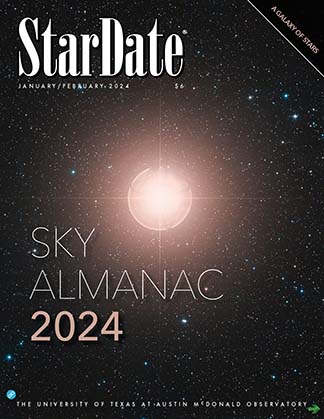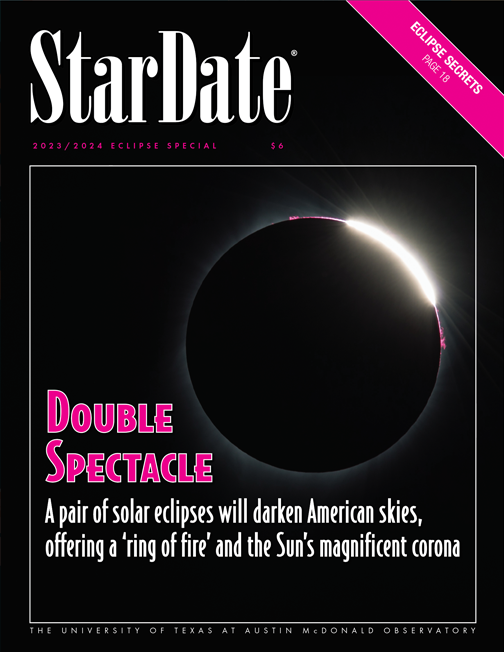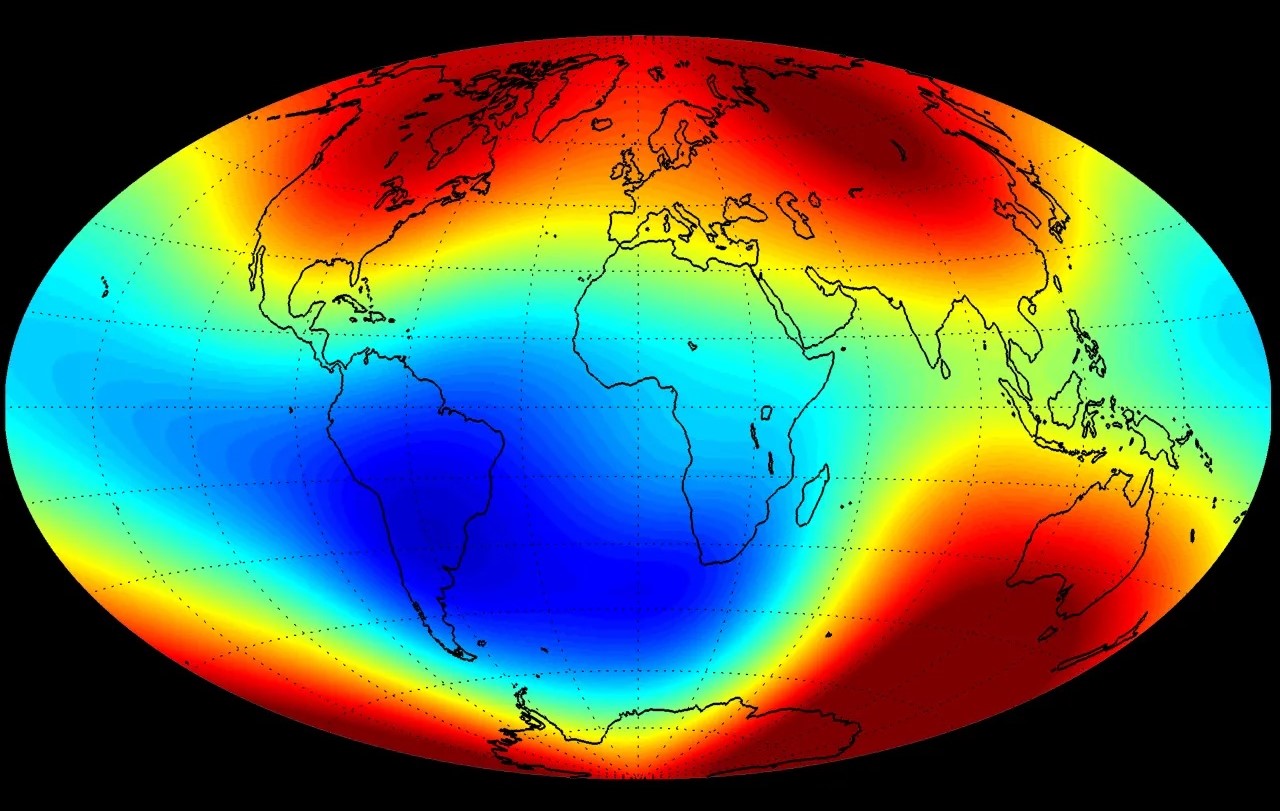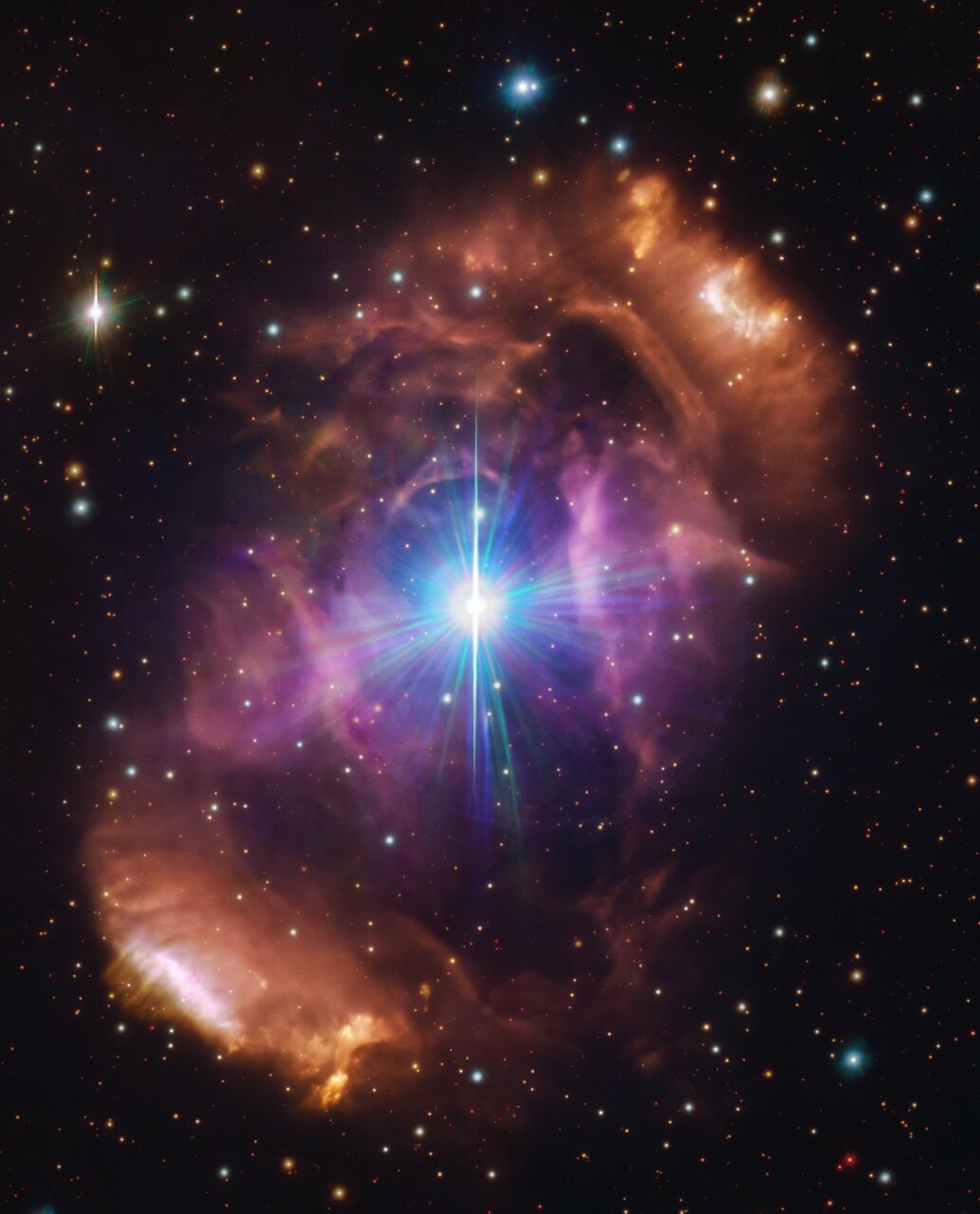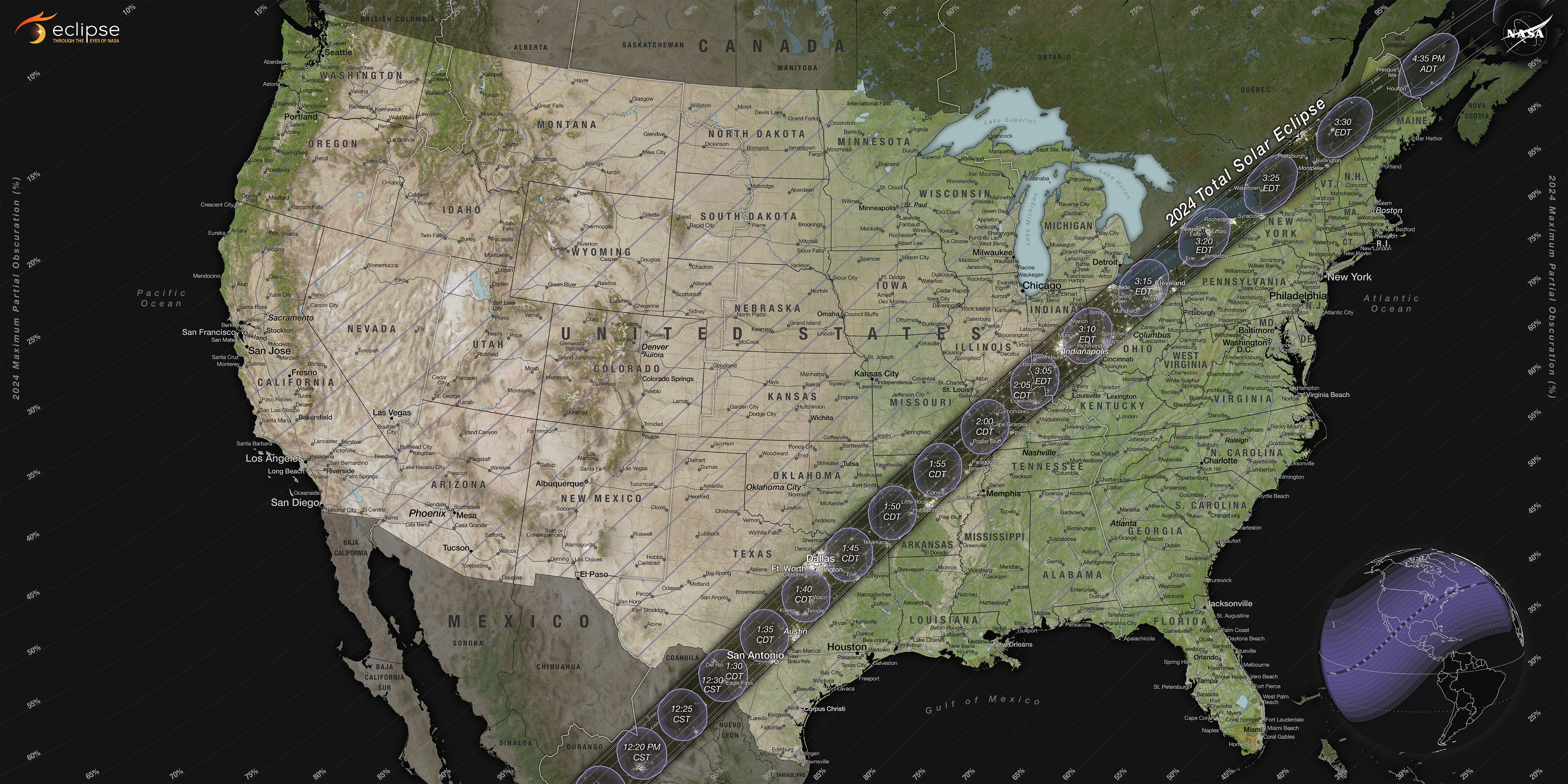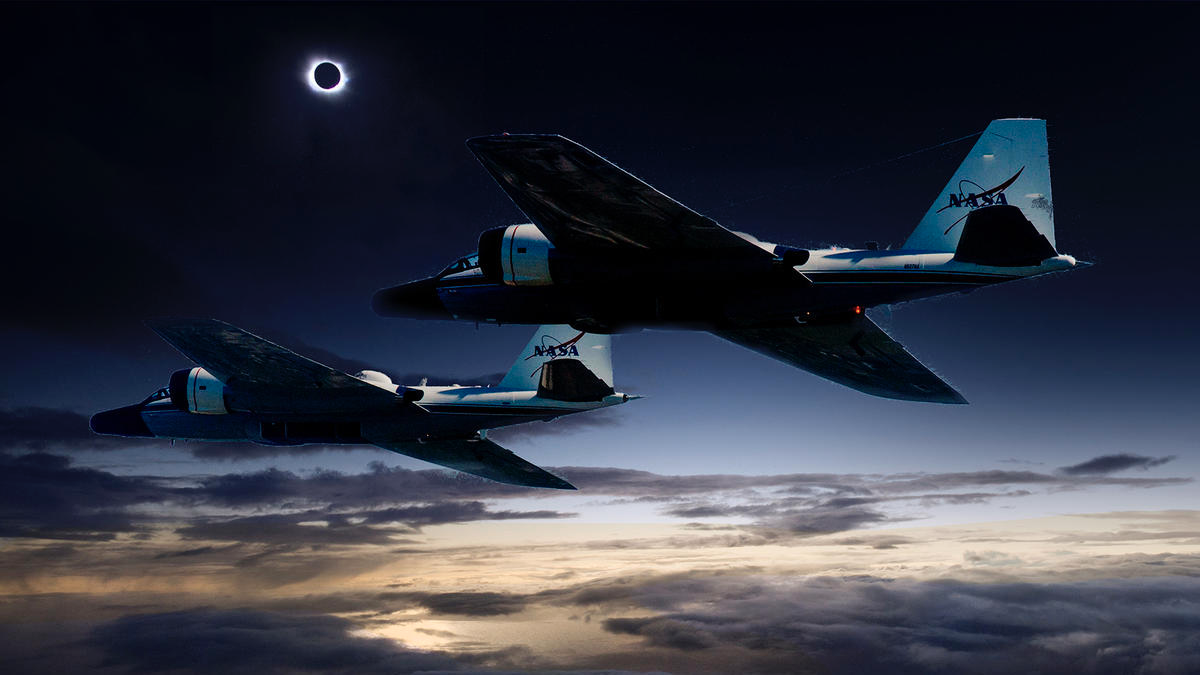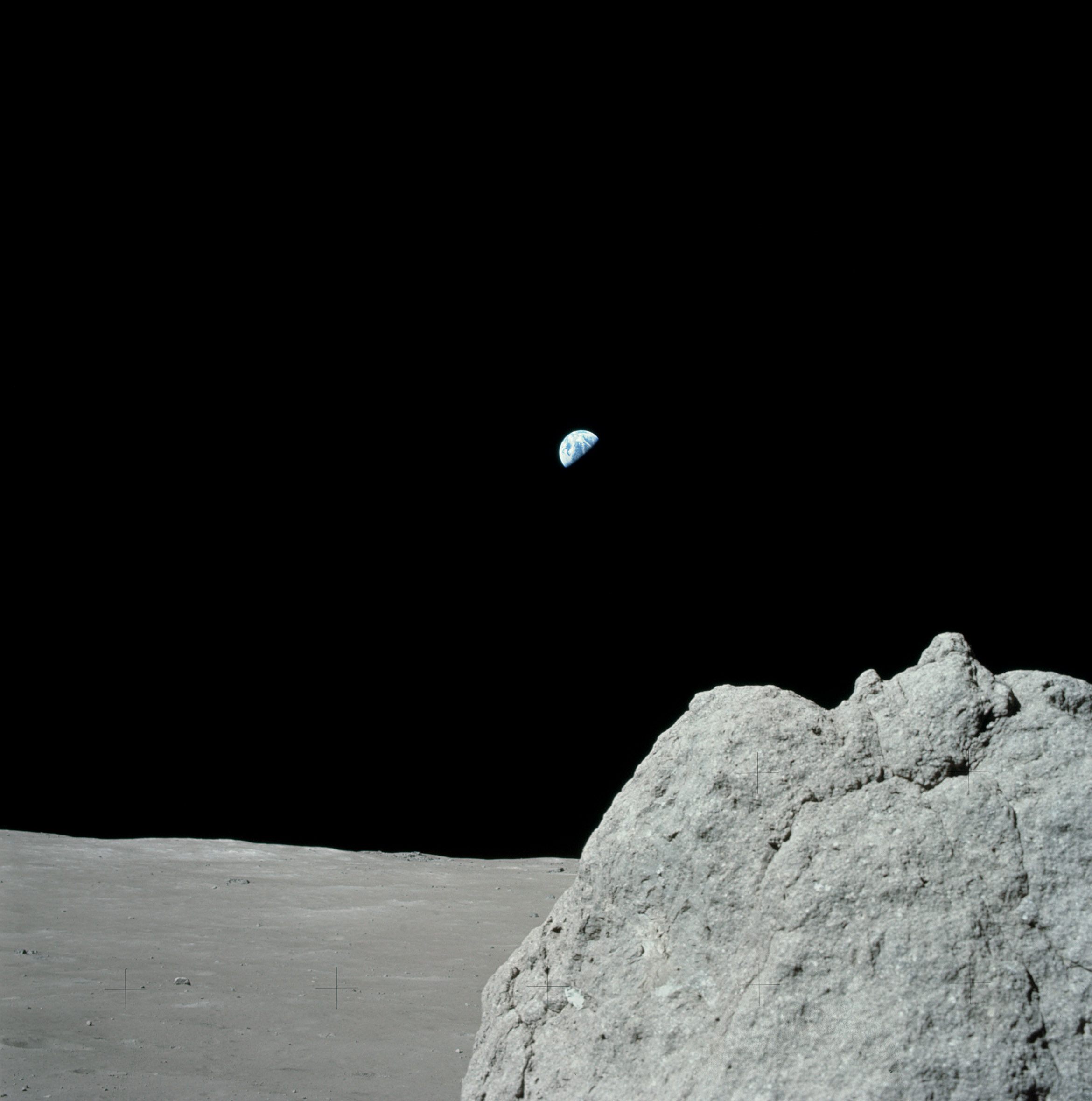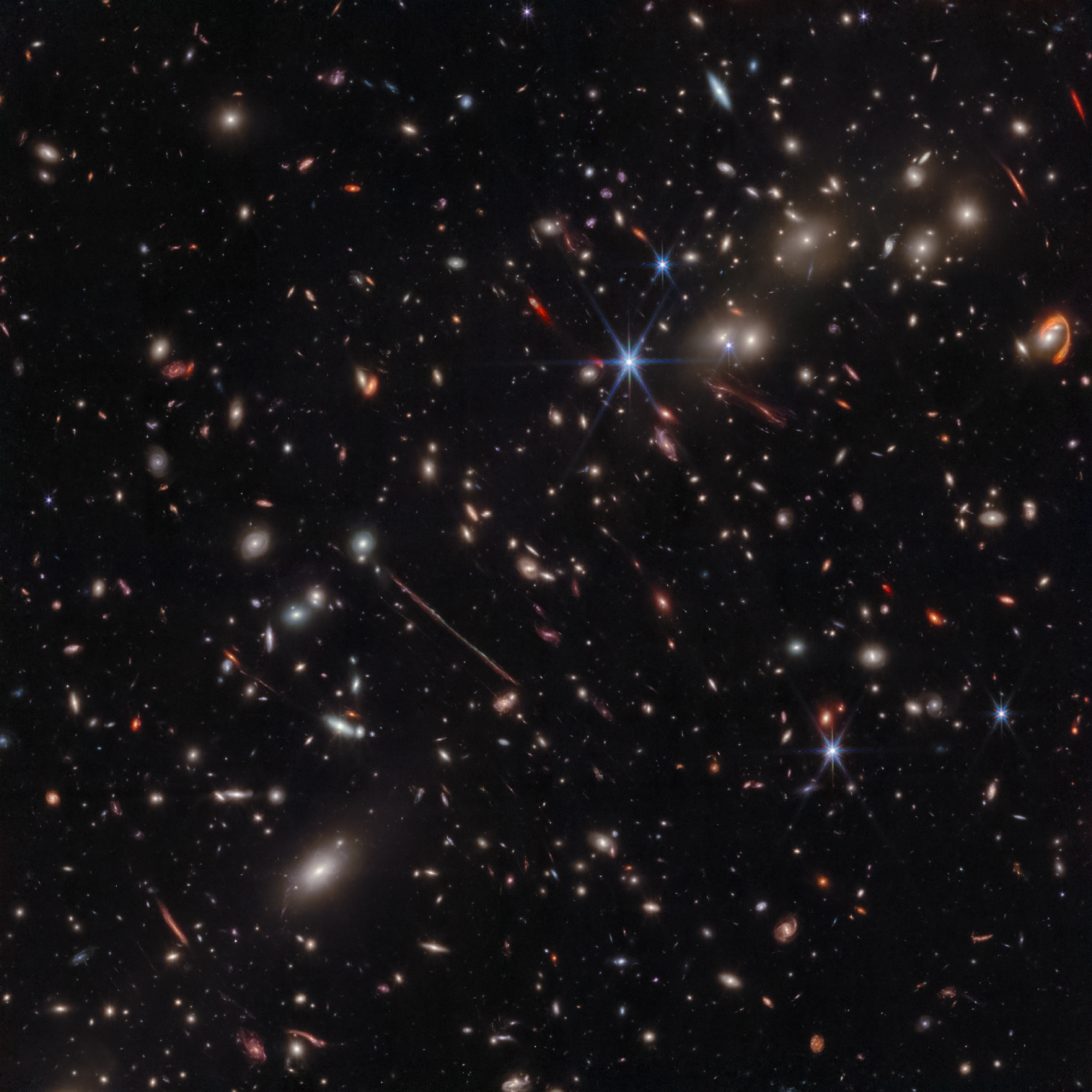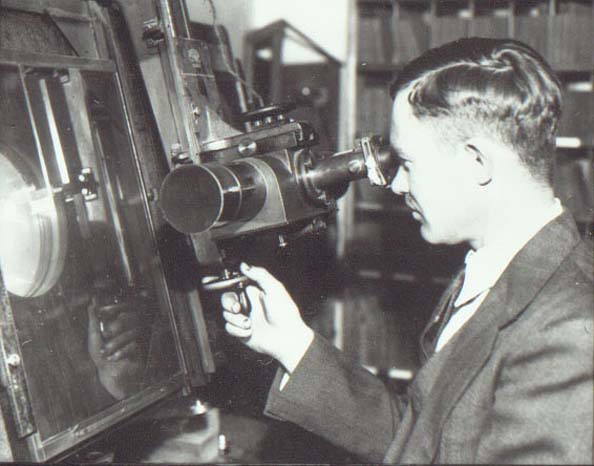Welcome to StarDate
Home of America’s longest-running national daily astronomy radio feature.
And so much more.
Stardate:
May 6, 2024Radio: Today’s Episode
-
Hercules
Preserving the legacy of the strongman
Premium Same-Day Audio Access lets you stream episodes of StarDate the same day they air.
Log in or subscribe now to listen!
Radio: Yesterday’s Episode
-
Leo Triplet
Beautiful “triplets” for the lion
 /RSS Feed
/RSS Feed
Stargazing
-
Hercules
Hercules the strongman is in the east and northeast at nightfall and swings high overhead during the night. Hercules is the Roman version of Heracles, a son of Zeus, the king of the Greek gods of Olympus.
-
Leo
Leo, the lion, is high in the south sky at nightfall. It consists of two patterns of stars. A backward question mark represents the lion’s head and mane, while a triangle of stars to the left forms the lion’s hindquarters and tail.
-
More Moon and Planets
The planet the next few mornings. The planet is passing farthest from the Sun, and it looks like a fairly bright star. Tomorrow, it’s to the lower left of the Moon during twilight, with Mars and Saturn to the upper right of the Moon.
Moon Phases
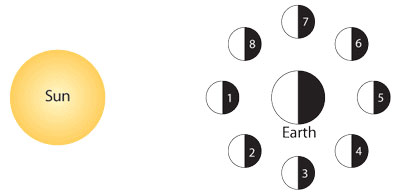
At the new Moon phase, the Moon is so close to the Sun in the sky that none of the side facing Earth is illuminated (position 1 in illustration). In other words, the Moon is between Earth and Sun. At first quarter, the half-lit Moon is highest in the sky at sunset, then sets about six hours later (3). At full Moon, the Moon is behind Earth in space with respect to the Sun. As the Sun sets, the Moon rises with the side that faces Earth fully exposed to sunlight (5).
Today’s Sponsor
Stardate Magazine
Current Issue: MaY/JUNE 2024
The Return of IGRINS
by Emily Howard
This issue highlights the return of an instrument that studies the infrared universe, and after a decade, it’s about to come home to the McDonald Observatory in Texas. We’ll also have all the latest astronomy news, a comprehensive two-month stargazing guide for the months of May and June, detailed skycharts, and answers to your astronomy questions from our science guru Merlin.

Shop
Combos – Bundle and Save
Popular
Explore
Featured Images
Fun Factoid
More fun facts in our Astro Field Guide!
Star Teachers
-
Stars and Galaxies
Galaxies contain billions of stars. Do galaxies collide? Do the stars within them collide?

